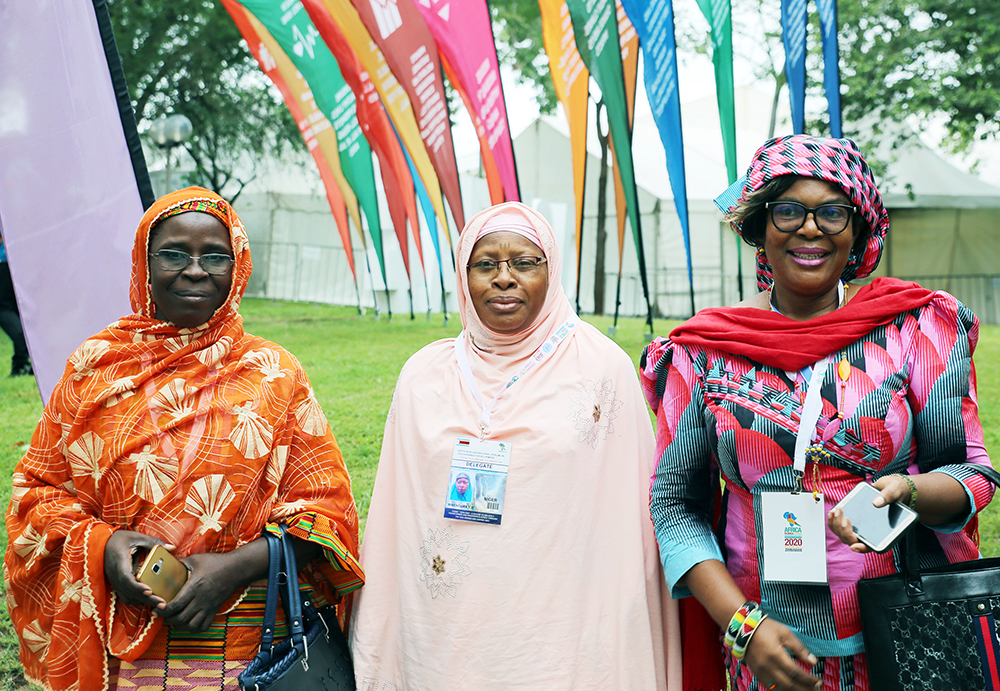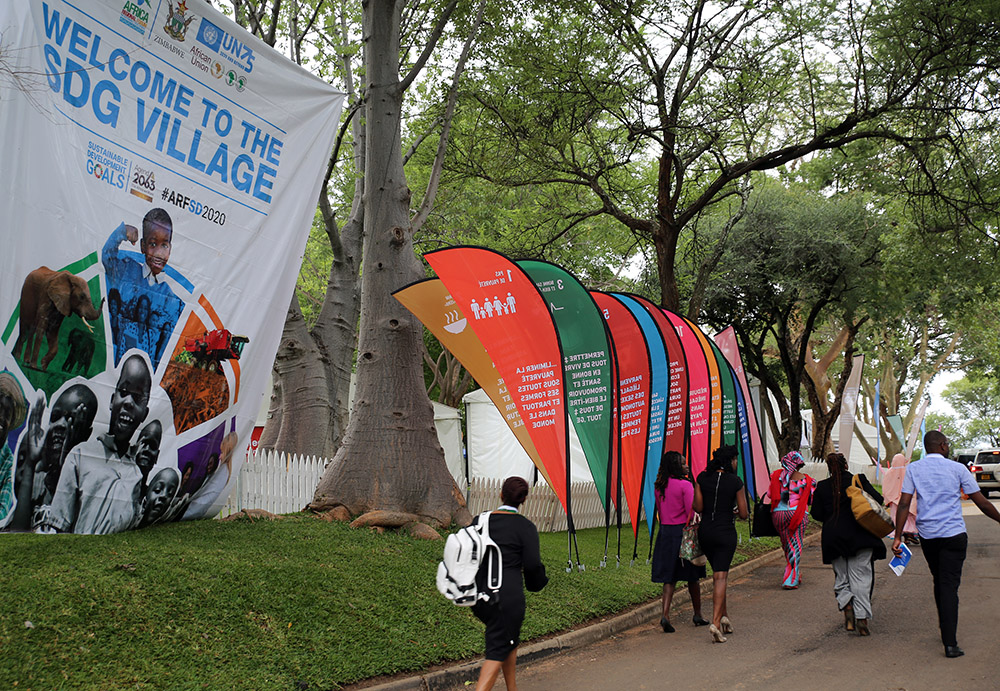Summary
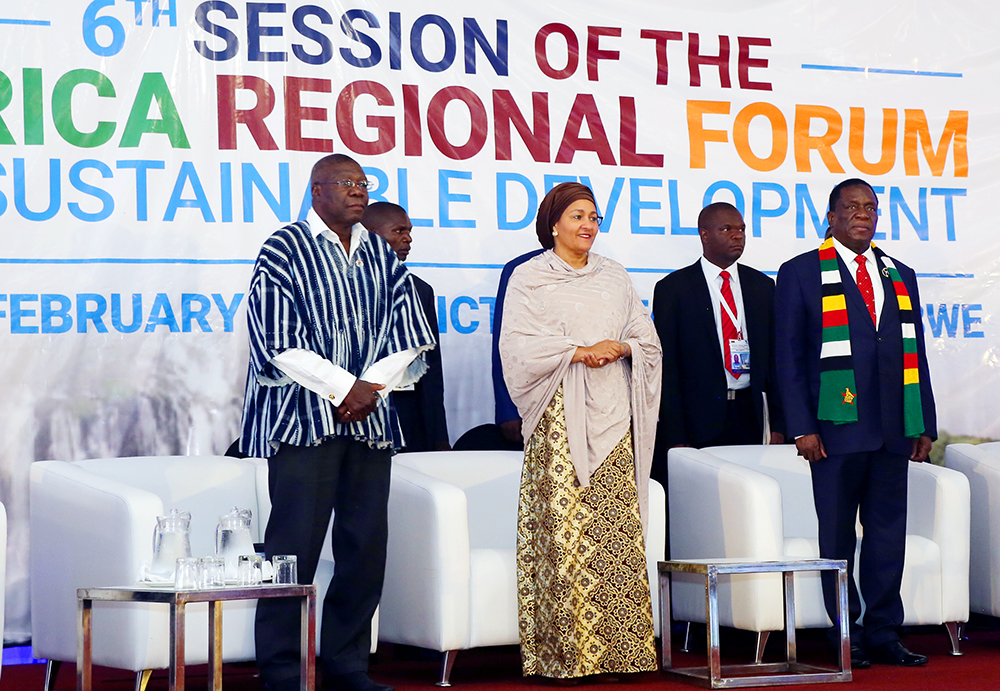
The official opening of the Africa Regional Forum on Sustainable Development (ARFSD 2020) took place on Wednesday morning, with opening statements by Amina Mohammed, UN Deputy Secretary-General, and Emmerson Mnangagwa, President of Zimbabwe, among other high-level speakers.
Vera Songwe, Executive Secretary, UN Economic Commission for Africa (ECA), emphasized the need for “collective wisdom,” in order for Africa to go “faster and higher,” and lauded youth for generating future solutions for sustainable development.
Kwesi Quartey, Deputy Chairperson, African Union Commission, (AUC), hailed 2020 as “an important milestone for Agenda 2030 and its twin sister Agenda 2063.” He emphasized that without peace and security, it would not be possible to achieve the SDGs.
UNDSG Mohammed called for kickstarting the Decade of Action on the SDGs, highlighting progress on: the proportion of people living in poverty declining in 10 African countries; strides in peace and security; and gains in health outcomes.
In his address, President Mnangagwa called for leveraging Africa’s comparative advantages to improve life on the continent, noting that reforms could not be undertaken without the requisite financial support. He stated that “if one country in Africa is left behind then we are all left behind.”
A high-level ministerial panel then convened to reflect on Africa’s progress as well as priorities and entry points for accelerating implementation of the SDGs. Opening the discussion, Ncube lamented that “we are not incubating the SDGs fast enough,” and proposed four focal areas for accelerating delivery:
- Strengthening the financing architecture through domestic resource mobilization, including “crowding in” of the private sector;
- Strengthening the policy and institutional architecture through increased alignment of national development plans with the 2030 and 2063 agendas;
- Strengthening results-based analysis of speed of SDG progress and enhanced synergies in reporting at different levelsframeworks; and
- Improving communication and advocacy on the SDGs, both internally and externally.
In the afternoon, following a presentation of regional progress reports on the implementation of the 2030 Agenda and Agenda 2063 at the regional and subregional level, participants held discussions in two plenary roundtables to reflect on country progress and lessons learned from the Voluntary National Reviews (VNRs) as well as voluntary local reviews.
Various events convened by UN entities, major groups and stakeholders, and other partners, took place on the margins of the meeting, including: the African Women Leaders Network (AWLN) Launch and Dialogue; ‘The Food Security-Nutrition-Poverty Nexus: Progress, Challenges and Opportunities to Achieve SDGS of 2030 Agenda and Commitments of Agenda 2063/Malabo Declaration’; ‘Ending Discrimination and Changing the Terms of Inclusion: Making the SDGs Meaningful for all in Africa’; and ‘Accelerating the Promise to Leave No One Behind: Enhancing Partnerships to Advance Population and Development in Africa.’
IISD Reporting Services, through its ENB+ Meeting Coverage, is providing daily web coverage from ARFSD 2020. In addition, IISD Reporting Services will publish a summary report from the session on Sunday, 1 March 2020.
Photos by IISD/ENB | Francis Dejon
For photo reprint permissions, please follow instructions at our Attribution Regulations for Meeting Photo Usage Page
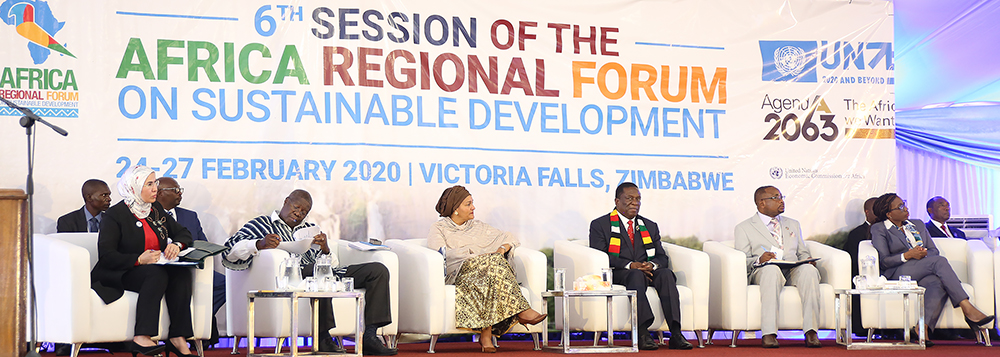
Ouafi, Morocco; Kwesi Quartey, Deputy Chairperson, African Union Commission (AUC); Amina Mohammed, Deputy Secretary-General of the UN; Emmerson Dambudzo Mnangagwa, President of Zimbabwe; Paul Mavima, Minister of Public Service, Labour and Social Welfare, Zimbabwe; and Vera Songwe, Under Secretary-General, and Executive Secretary, Economic Commision for Africa (ECA)
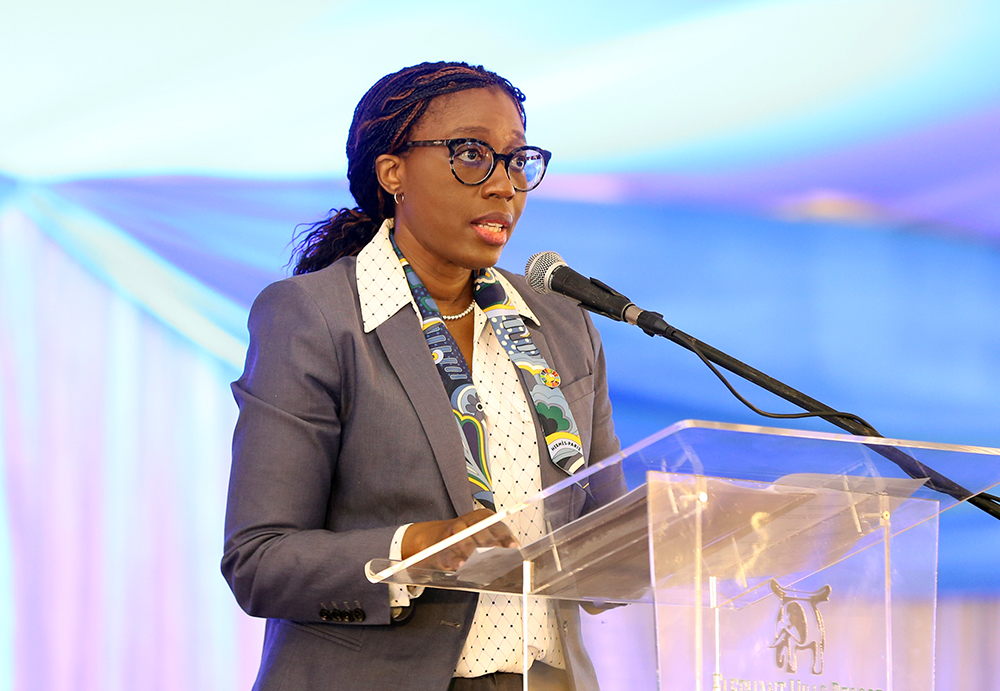
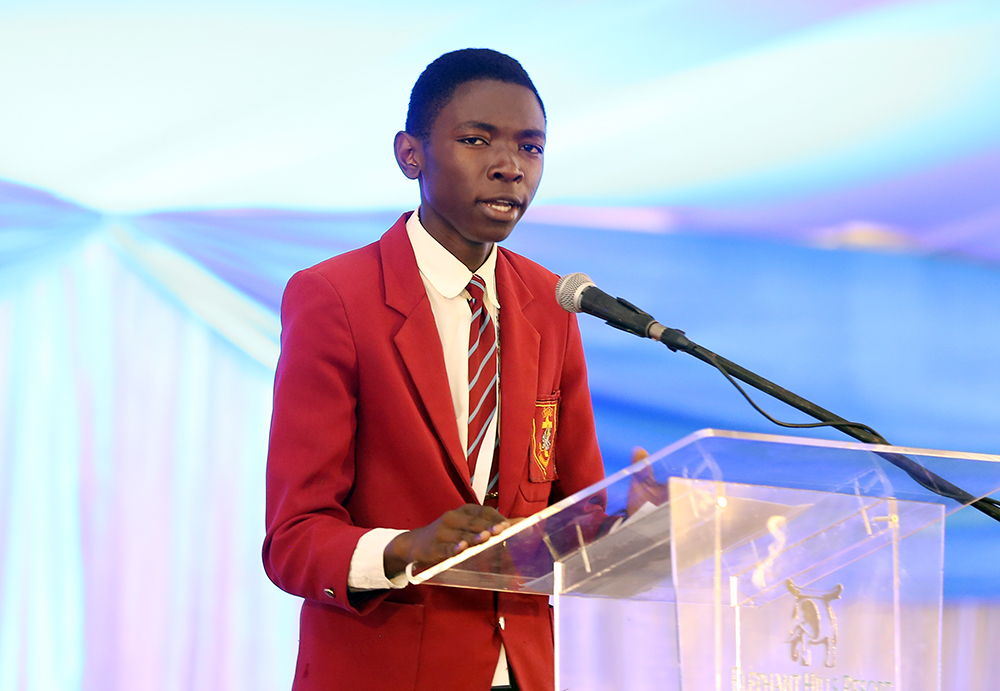
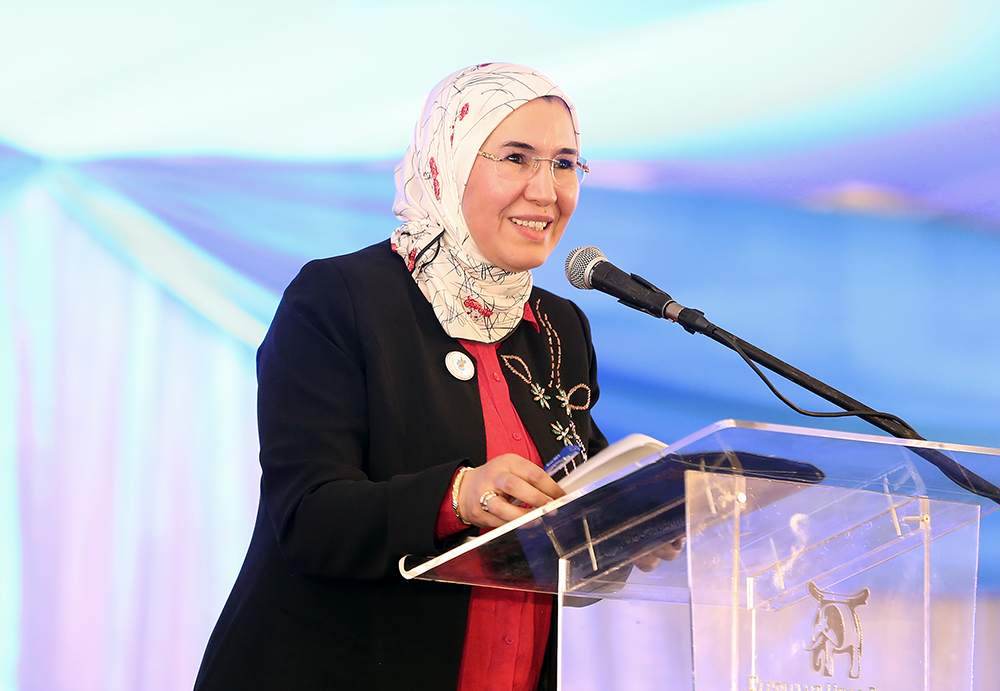
Ouafi, Morocco
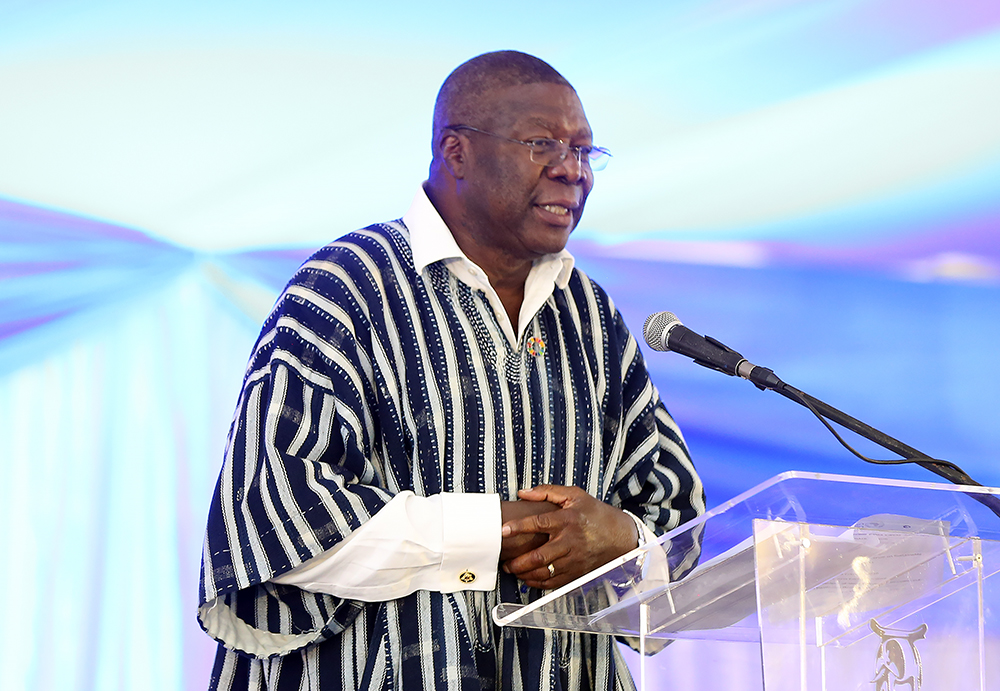
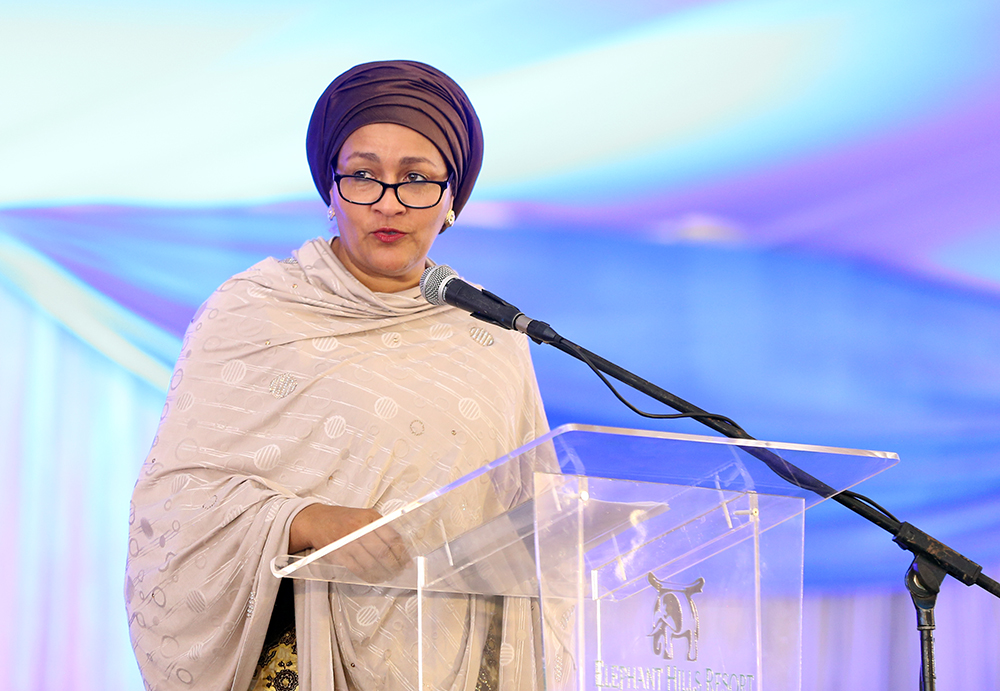
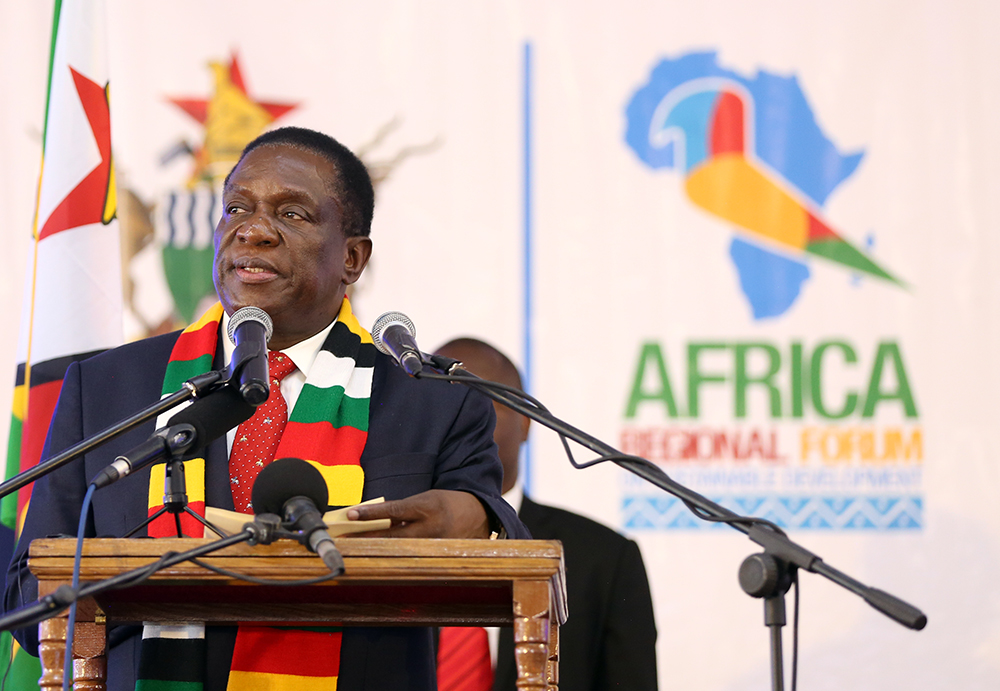
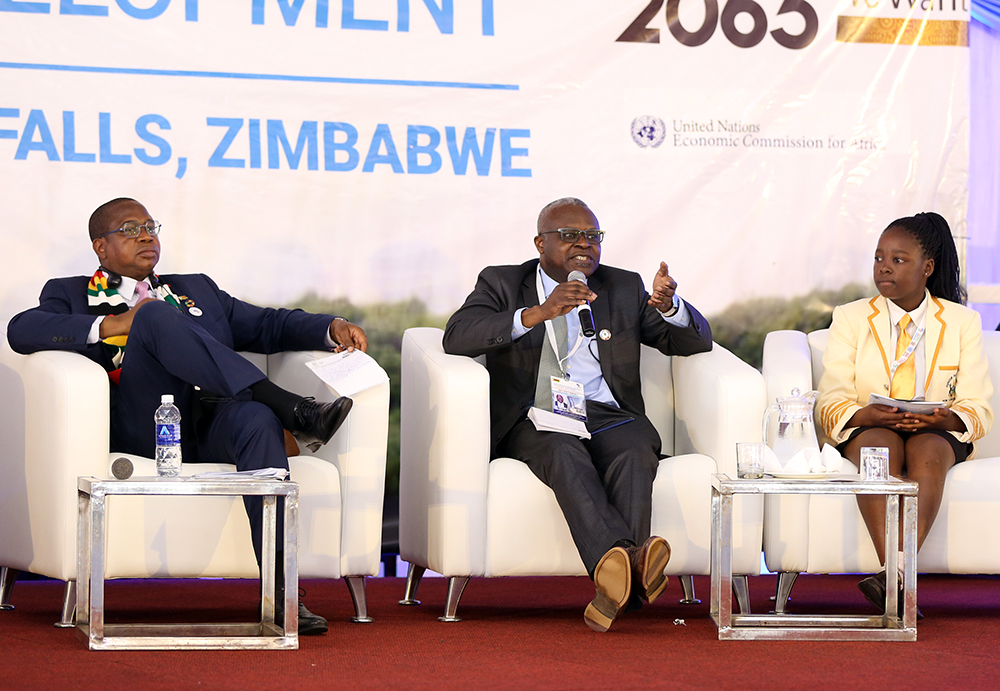
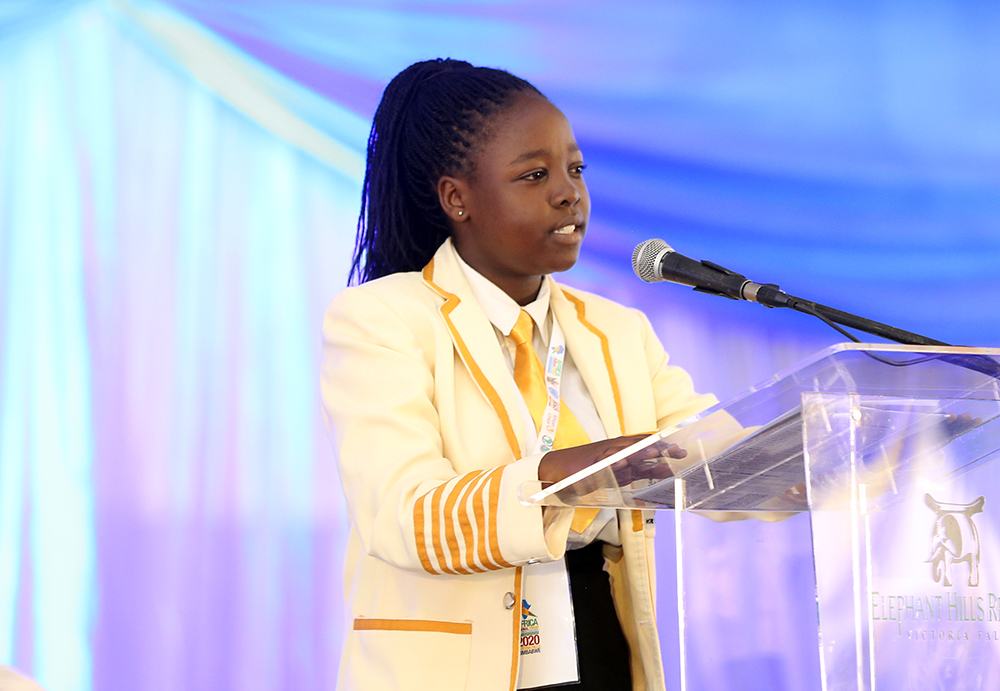
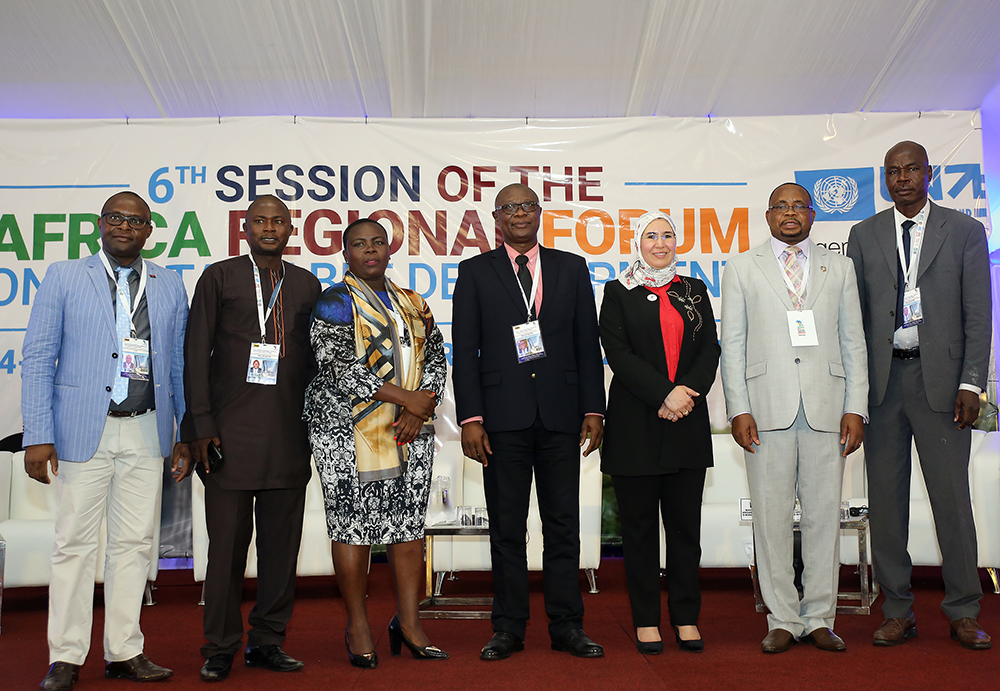
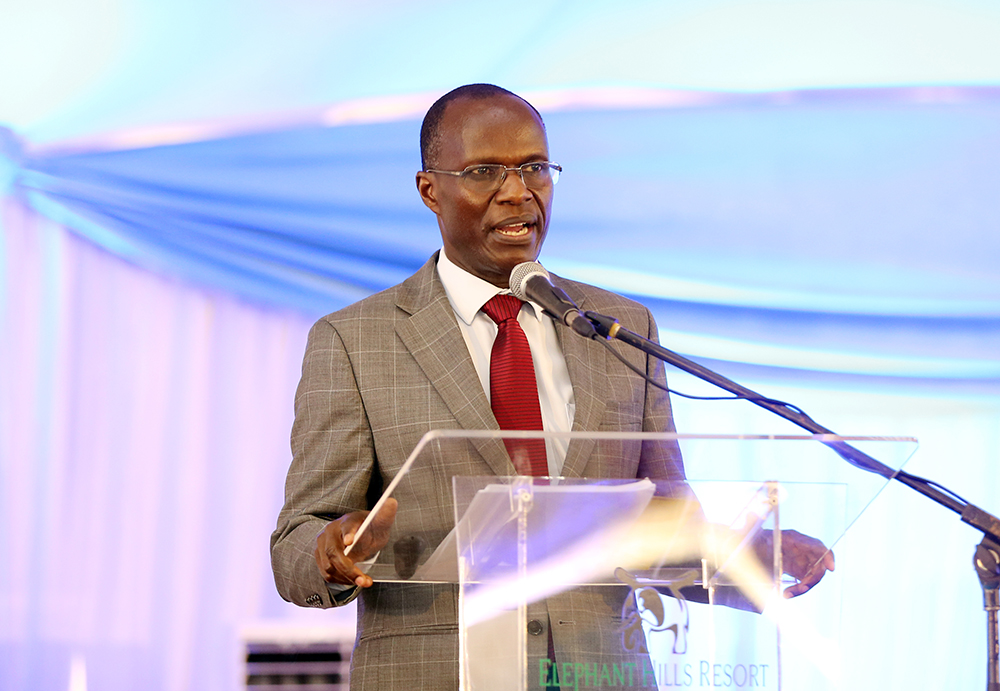
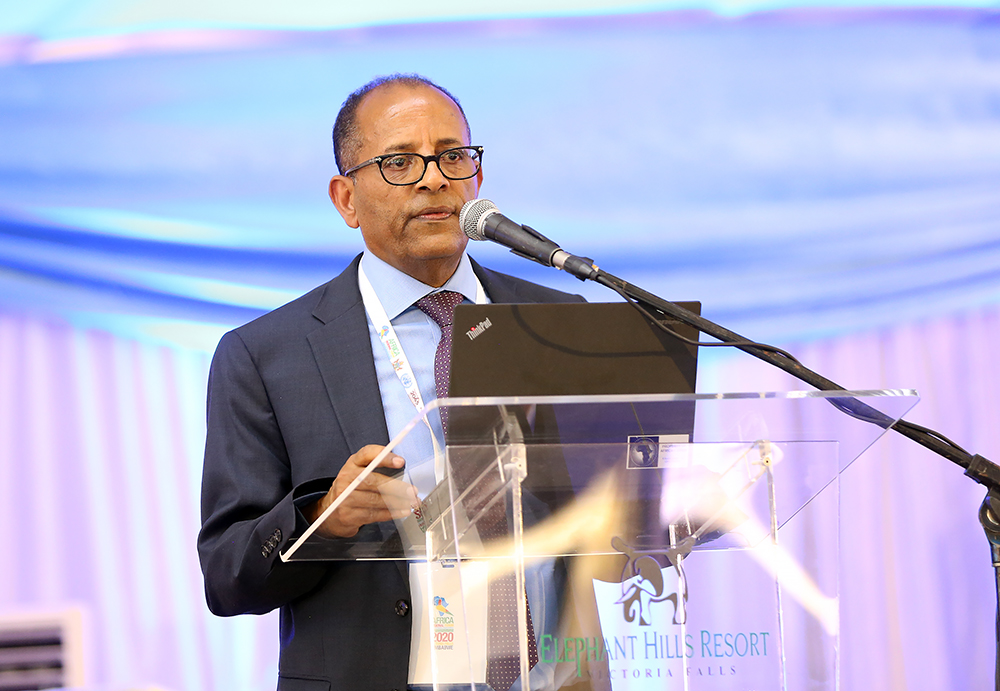
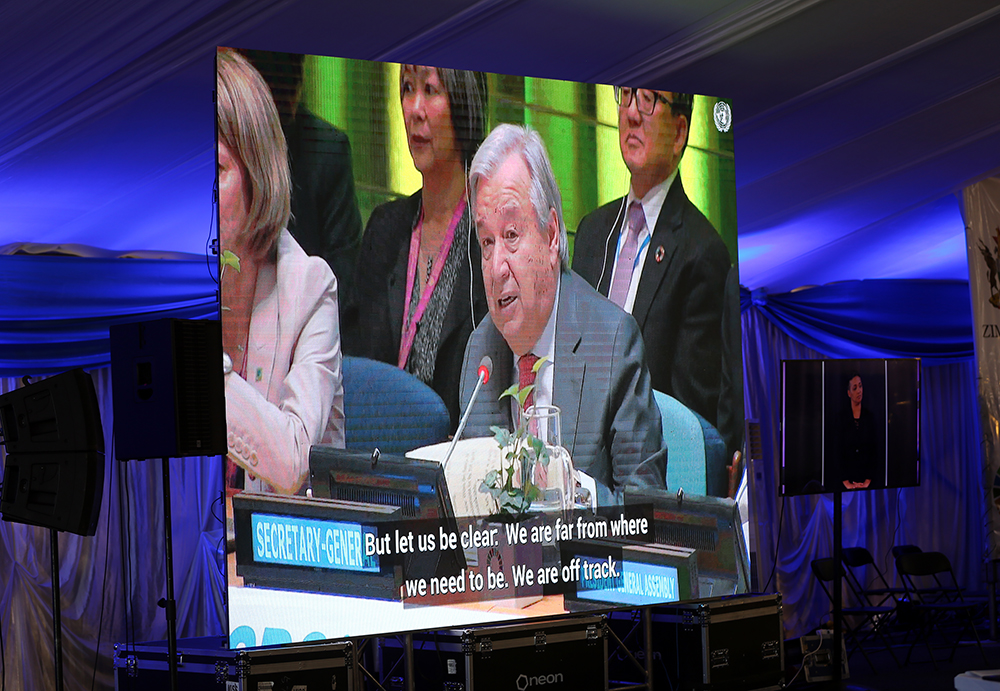
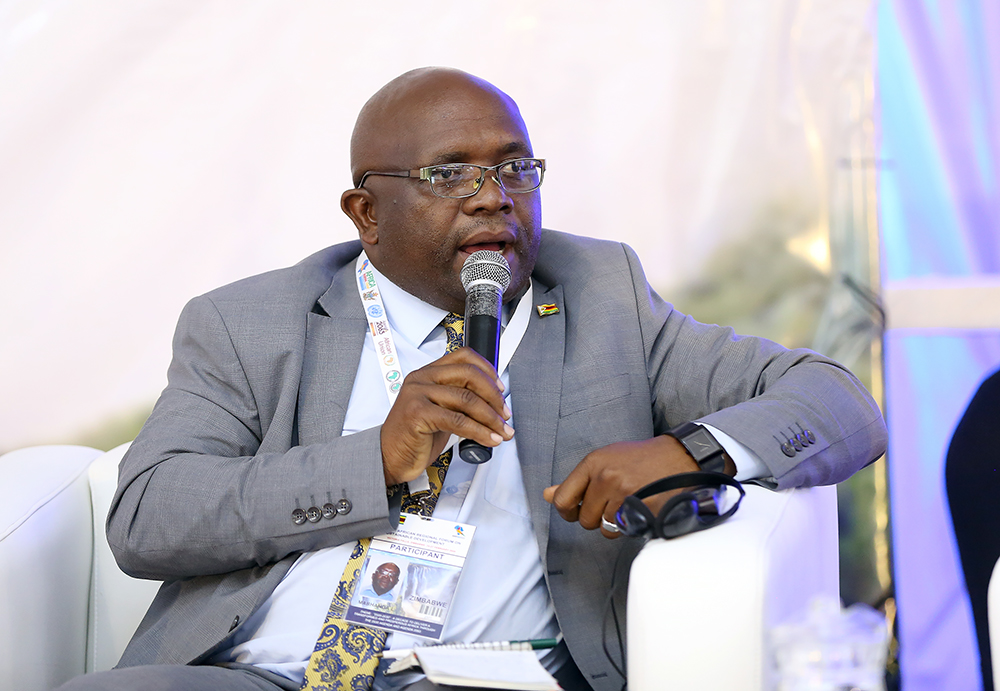

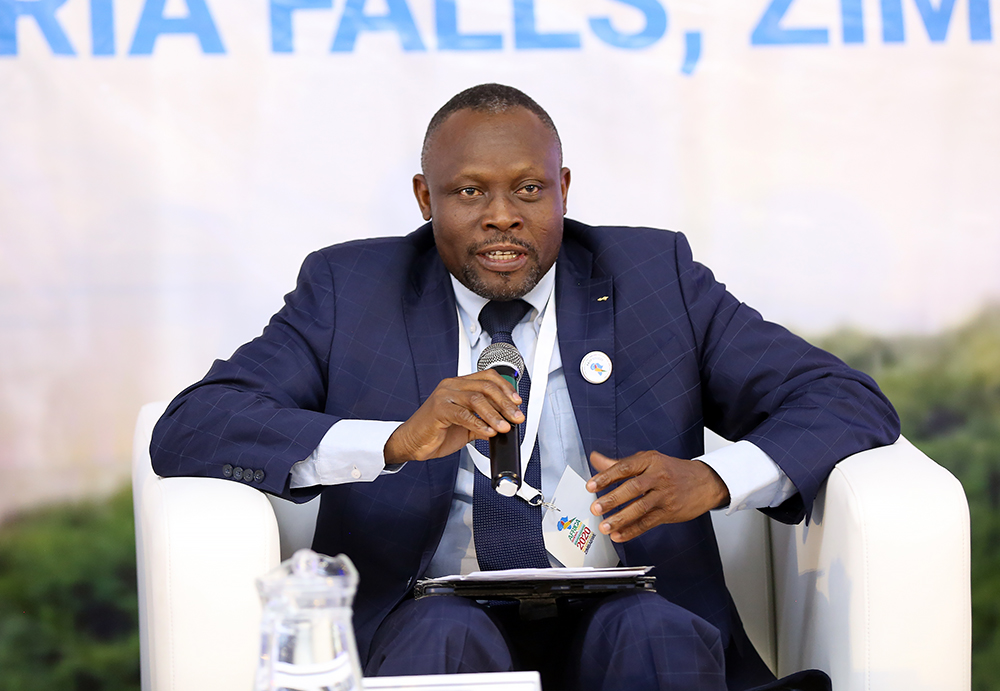
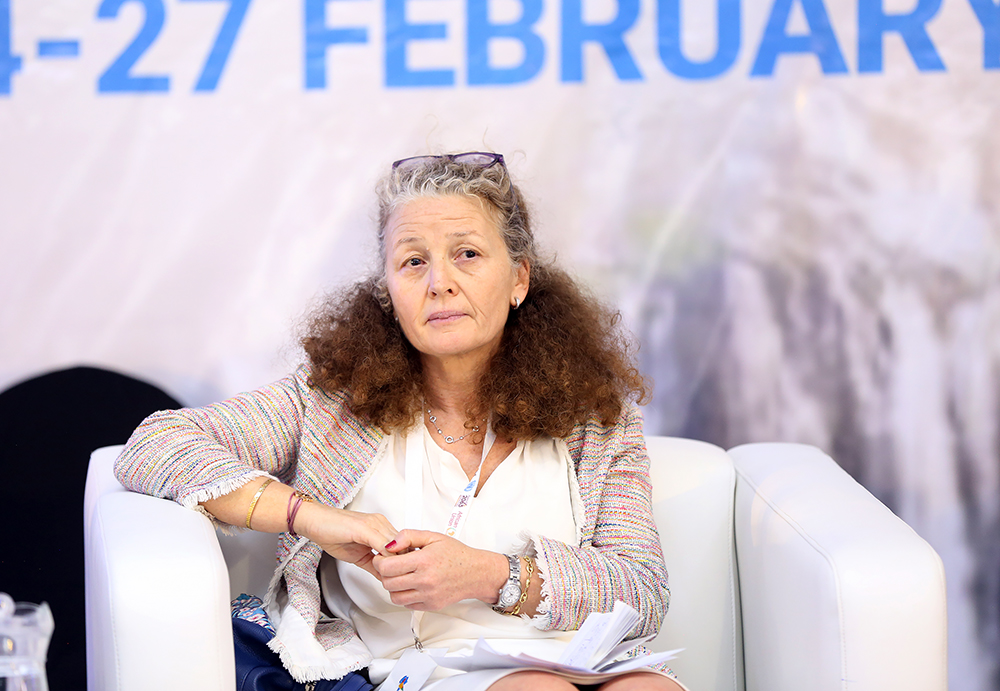
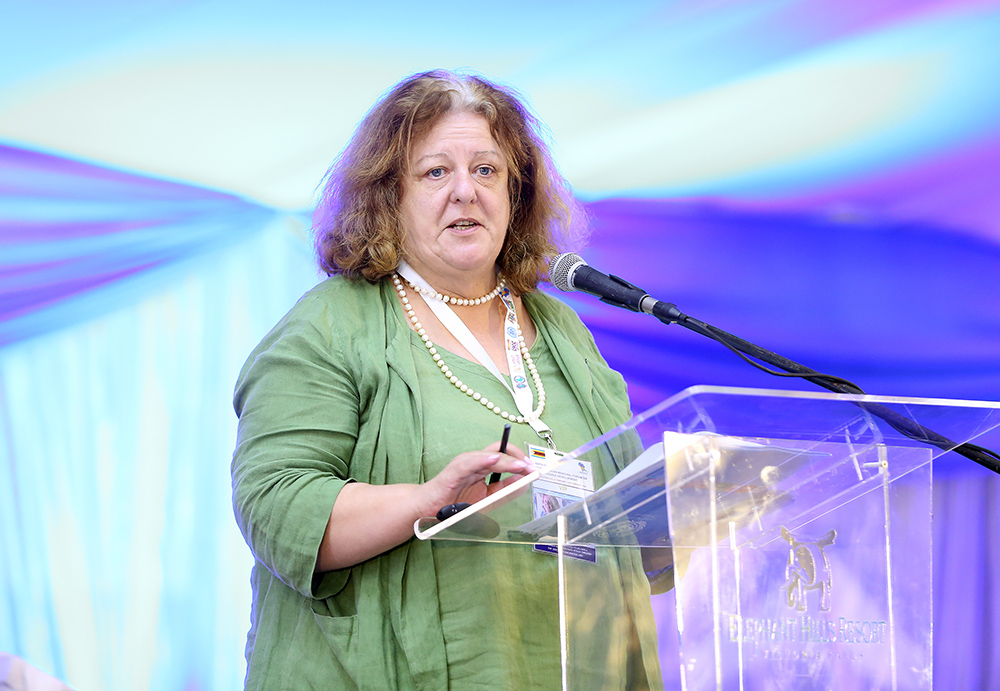
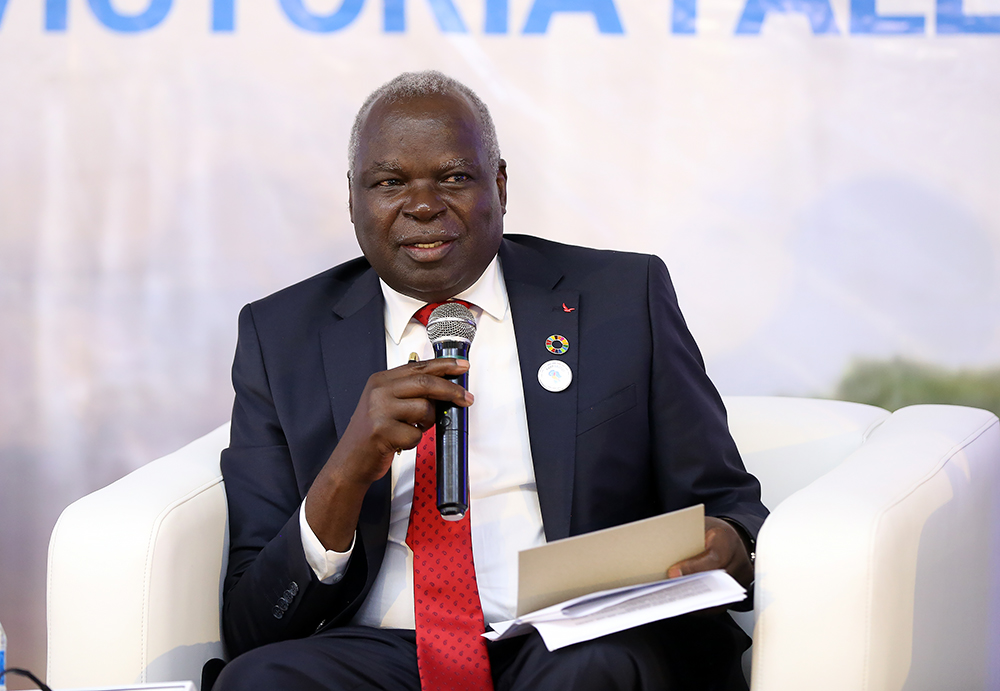
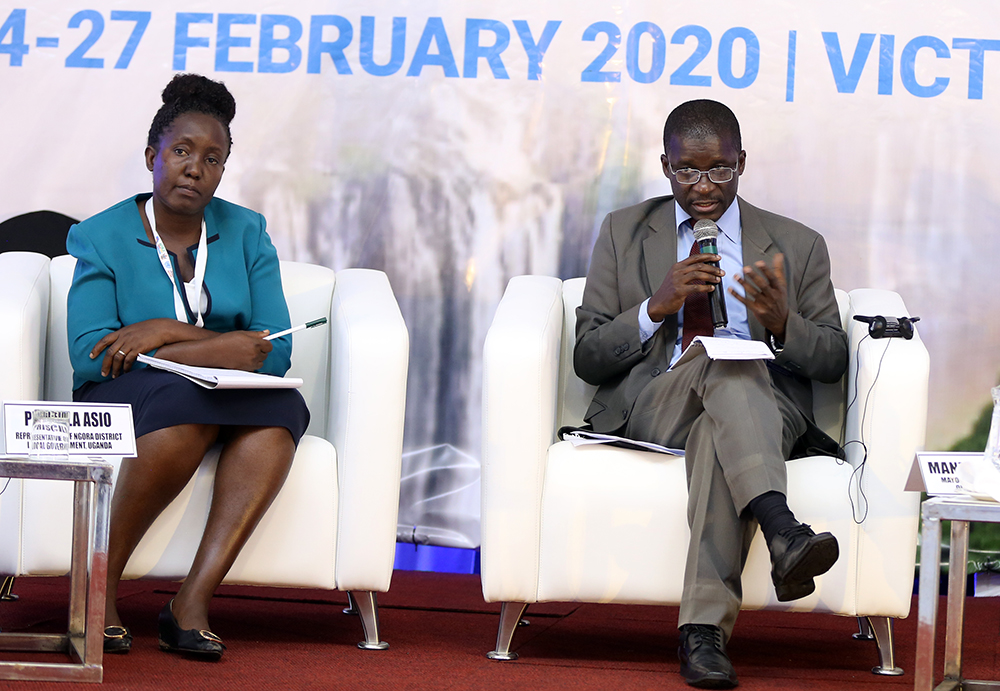
Uganda, and Manuel de Araujo, Mayor of Quelimane, Mozambique
